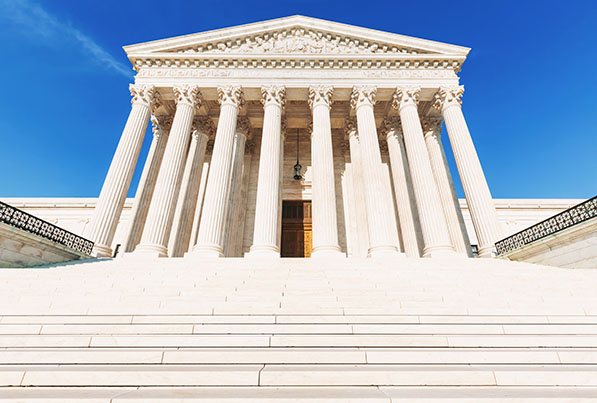In a win for employers, the U.S. Supreme Court recently made it harder for the National Labor Relations Board (NLRB) to obtain injunctive relief against employers in disputes over alleged “unfair labor practices” — directing courts to use the traditional (and strict) four-factor injunction test rather than an easier test some courts had been applying in such disputes (Starbucks Corp. v. McKinney, No. 23-367 (U.S. June 13, 2024)).
The NLRB has the authority to bring enforcement proceedings against employers for “unfair labor practices” under the National Labor Relations Act (NLRA), a federal law that applies to most employers, providing employees with rights to join together to improve their wages and working conditions — with or without a union.
Because administrative proceedings before the NLRB can take years, Congress provided the NLRB with authority to seek a preliminary injunction under Section 10(j) of the NLRA while proceedings continue. These injunctions generally either prohibit an employer from taking an action or compel it to take an action, such as reinstating terminated employees while the dispute is resolved.
In this case, the NLRB sought a Section 10(j) injunction forcing Starbucks to rehire workers who were terminated for hosting media interviews afterhours in a closed store to promote their unionizing efforts. Starbucks argued that it terminated the employees for violating company policies by hosting the afterhours media event. The NLRB, however, convinced the district court to order that the workers be reinstated while the legal dispute to determine if the employees were terminated for engaging in union activities was resolved.
On appeal, Starbucks argued that the district court applied the wrong standard in determining whether to grant the injunction, and the Supreme Court agreed — settling a split in authority among federal courts on how to evaluate requests under Section 10(j). Prior to this decision, some courts applied a strict test, which made it difficult to obtain an injunction, while others applied a more lenient union-friendly test.
In this case, the district court, and subsequently the Sixth Circuit, applied the lenient test, under which the NLRB had to show that:
- There is “reasonable cause” to believe an unfair labor practice occurred, and
- Relief is “just and proper.”
The Supreme Court rejected that test, concluding that when considering a NLRB Section 10(j) injunction request, the courts must apply the traditional four-factor injunctive relief test under which a party must show:
- It is likely to succeed on the case’s merits;
- It will likely suffer irreparable harm without preliminary relief;
- The balance of equities tips in its favors; and
- An injunction is in the public interest.
Injunctive relief is an extraordinary equitable remedy, which is why the court adopted such a strict test for parties seeking this relief. Here, the Supreme Court concluded that nothing in Section 10(j) of the NLRA warrants departing from the traditional four-part test.
This case is a win for employers because it ensures a consistent standard is applied to the NLRB when seeking 10(j) injunctions, which is especially important for multi-state employers. It also puts the NLRB on the same level as other litigants when seeking injunctive relief.
Though this case is a win, employers should continue to do all they can to avoid unfair labor charges in the first place. As previously discussed here, here and here, the NLRB has taken an expansive view in recent years of the types of activities it deems protected under the NLRA. This means employers must use caution when disciplining employees for activities that can be construed as protected under the law and consult their legal counsel with specific questions.
James W. Ward, Employment Law Subject Matter Expert/Legal Writer and Editor
CalChamber members can read more about Unfair Labor Practice Charges in the HR Library. Not a member? Learn more about how HRCalifornia can help you.

